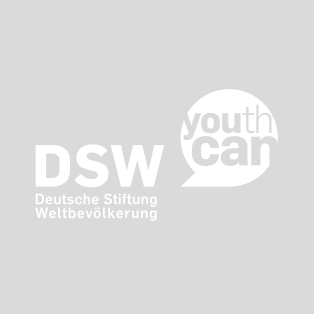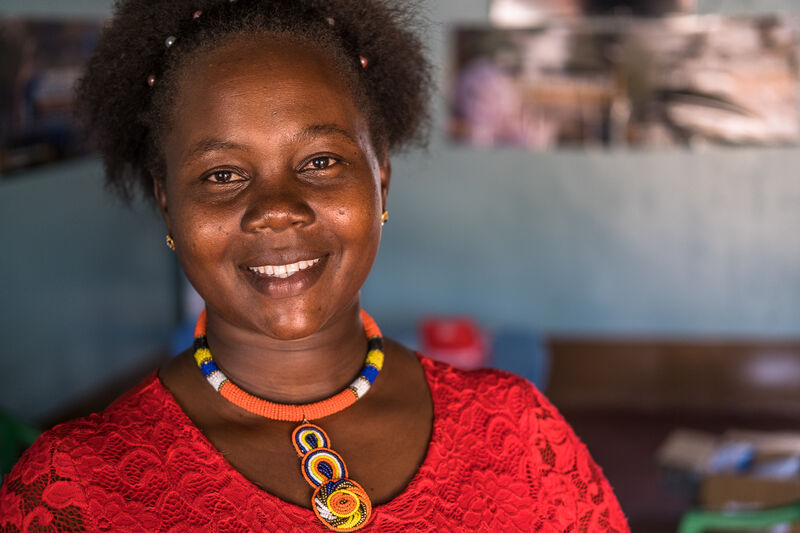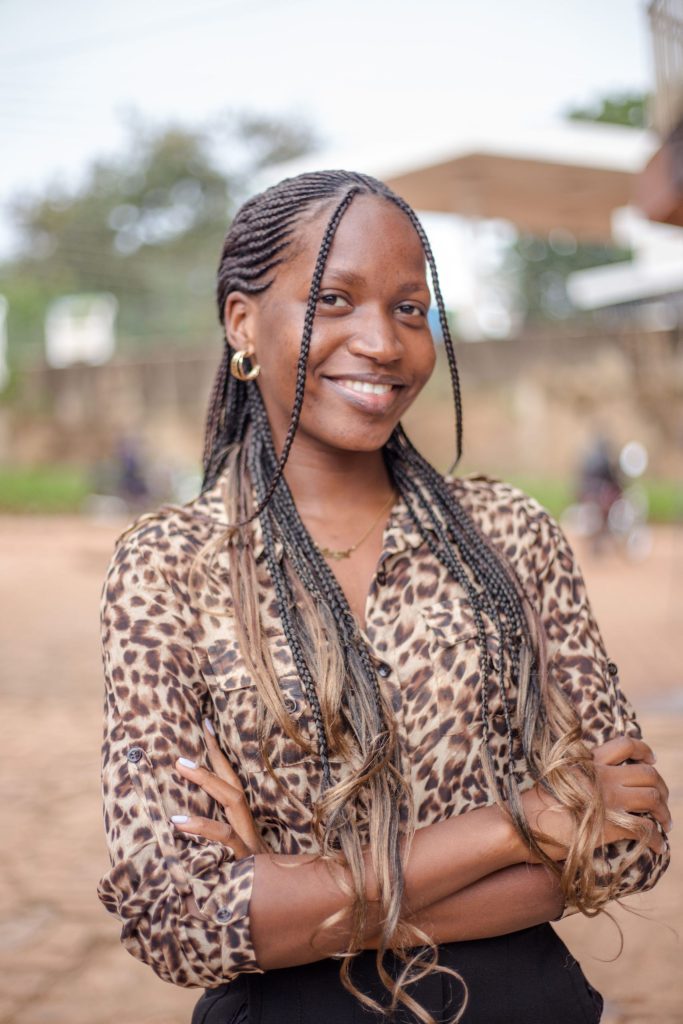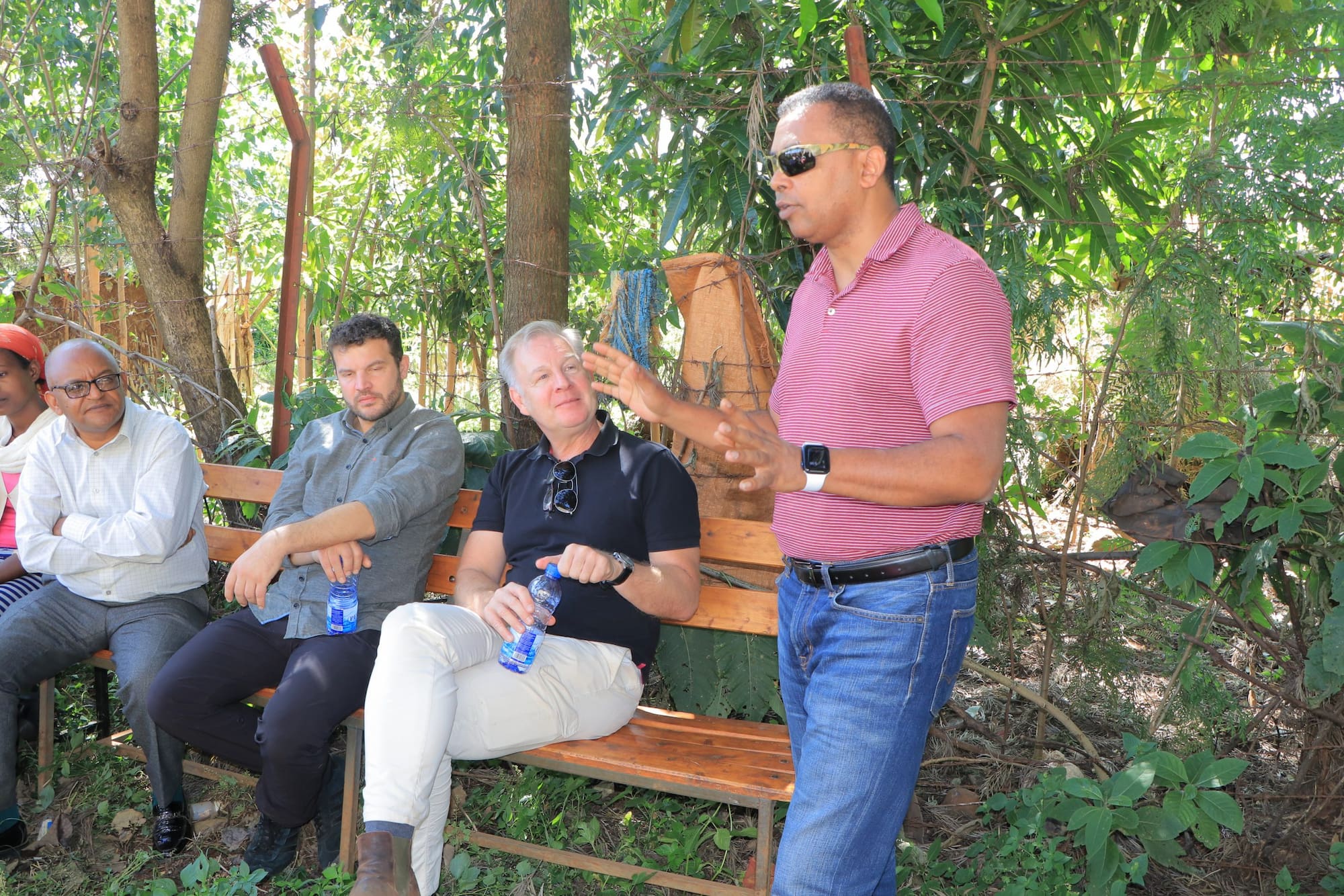

Donors Oversee SAfA’s Program in Ethiopia
From 7 to 9 November, a team of donors, represented by the German Ministry for Economic Cooperation and Development (BMZ) along with the Stiftungallianz für Afrika gGmbH (SAfA), visited three projects, which are synergized under a shared programmatic outcome located in seven different sites in the Amhara region. One of these projects focuses on sexual and reproductive health, which is the key thematic area of DSW Ethiopia. The program also embraces the same number of implementing areas in the Oromia region. The projects visited are part of a four-year bound conjoining program nominally managed between three separate but implementing partners.
Merawi, a town located 20 kilometers east of Bahir Dar was one of the first destinations of the visit. Meftihe Youth SRH club hosted the first visit during which the leadership team explained and answered questions raised from their inquisitive guests.
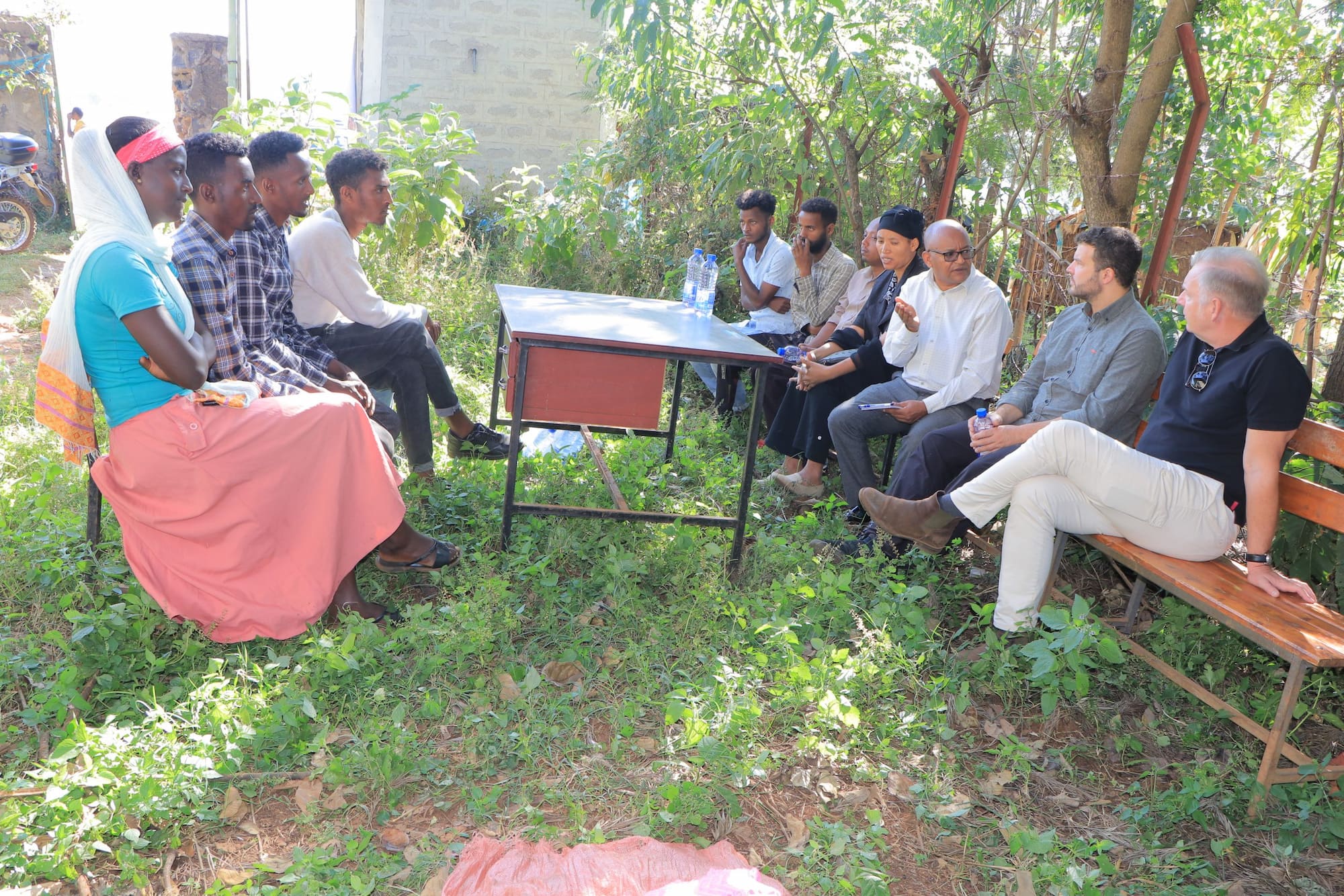
Cascading the capacity development efforts in SRH and family planning issues through trained peer educators along with a series of peer-led discussion and referral links facilitation were revealed as the core activities of the club. The two donor representatives curiously asked how the youth club leaders conduct the activities promoting SRH issues without the challenge faced by the community members. In an interactive discussion, the youth club leaders reconfirmed the challenges that were present at the initial stage of the project. The club leaders further reassured the donors “as the advocacy efforts intent on creating an enabling environment with the involvement of Woreda/District Advisory Committee (WAC) steadily drew the roles of elders and religious leaders, among others, the community members eventually started to work with us and strongly cooperate with the change agents who are also volunteers at the youth club.”
The change agents, who were selected among female members of the Youth SRH club and conveniently work in collaboration with the health extension workers (HEWs) received specific trainings by DSW. Their core activities focus on pre-scheduled visits to the households where married adolescent girls and young women can be reached out through a home-to-home visitation for SRH information and service provision. These change agents conduct their activities to mobilize community SRH/FP service provision. Just as in the youth SRH clubs or youth empowerment centers, the change agents can facilitate referral links during their home-to-home visits of female households. They also use the information directory for quick reference of knowledge on SRH/FP issues and give information on outreach activities. This strategy ripples across all project sites and has been able to mobilize a significant number of young women who would have been hard to reach through other activities for enabling them to have access to SRH/FP information and services. Most are prescribed family planning services of their own choice with referral slips issued on their behalves by the change agents.
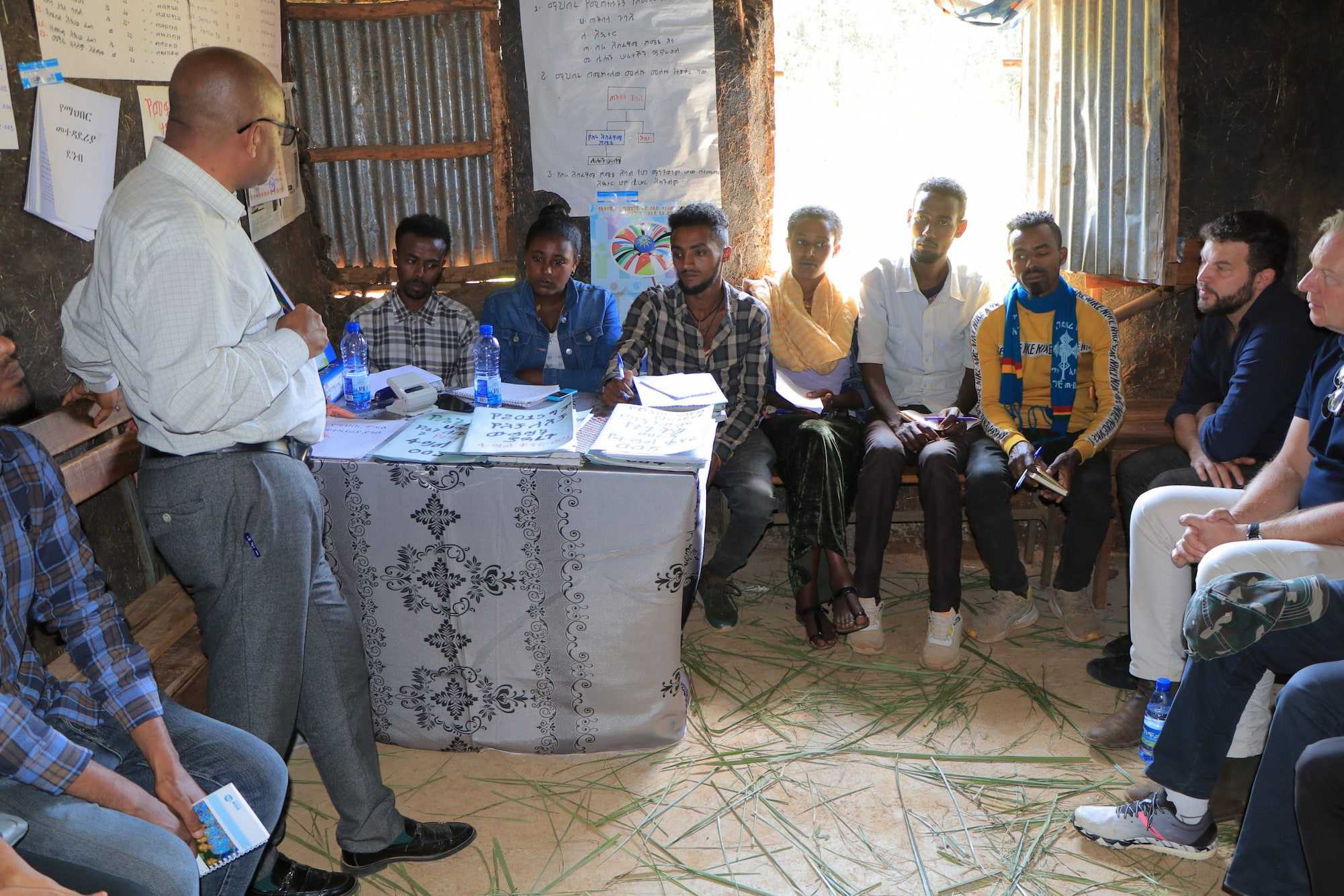
As part of the efforts to create a sense of ownership by community and government stakeholders alike, the tripartite agreements on the projects in the Memorandum of Understanding (MoU) form are signed by DSW, multi-sectoral-based relevant local government offices and the youth SRH clubs. By the same virtue, the Youth Agricultural Groups (YAG), the catalytic strategy of the HRNS’s part of the project to implement the livelihood aspects, has undergone similar processes using a multi-sectoral approach.
The two visiting donors inquired how in practice these three projects integrate a synergized outcome of the overall program. The three implementing partners in their respective expertise undertake different projects with specific outcomes. While DSW focuses on enhancing the sexual and reproductive health needs of young people, including materials supports and capacity development for health facilities, HRNS Ethiopia (Hanns R. Neumann Stiftung) engages in improving the livelihood prospects (in the agriculture sector) of youth and the EMF (Elias Melaka Foundation) intervenes in developing the food chain, logistics and market.
In a response to the general concern raised by the donors about the practicality of the synergetic connection of the project, Abebe Demisu, Program and Projects Department Manager with DSW explained that “each activity overlaps across the three projects in terms of benefiting different target groups of young people. The SRH/FP information needs of the whole target groups can be addressed by DSW’s intervention that makes the young people healthy and productive in their livelihood prospects. By the virtue of engaging the young people in peer-led discussion focusing on SRH topics and cascading these across the target groups, the uptake of services among them quickly increases. Much the same, the agricultural produces harvested by the specific target group need to get better market networks, understand the food chain processes and gain access to safe logistic mechanism. All these activities are interlinked using one means or another to enhance the sexual and reproductive health and livelihood prospects of young people in Ethiopia. Capacity development of the young people in SRH, enhanced farming model, entrepreneurship skills, and market intelligence remain a cross cutting effort.”
When asked by the visiting teams what the young people may have envisioned henceforth, the fast reactions came forth concerning budget. The youth’s expressed that if more budgets siphoned through the projects, the expansion of the young people’s livelihood prospects would have reached to a new high.
Retorting to their obvious expectation, Desalegn Eyob, Country Director of HRNS Ethiopia, gently reminded the youth about the exceptional opportunities that the eight billion world population brought in for people who engage in agriculture-related income-generating activities. Eight billion people around the world need to eat, at least, three times daily. Thus, the future lucrative business industry will belong to agriculture. “Part of the income generated from there grains should be used for reinvestment for expansion of a business model. Do not inflate your expectation from others, for the future has a great potential to enhance your livelihood prospects. Just work hard and keep going about it,” Desalegn advised.
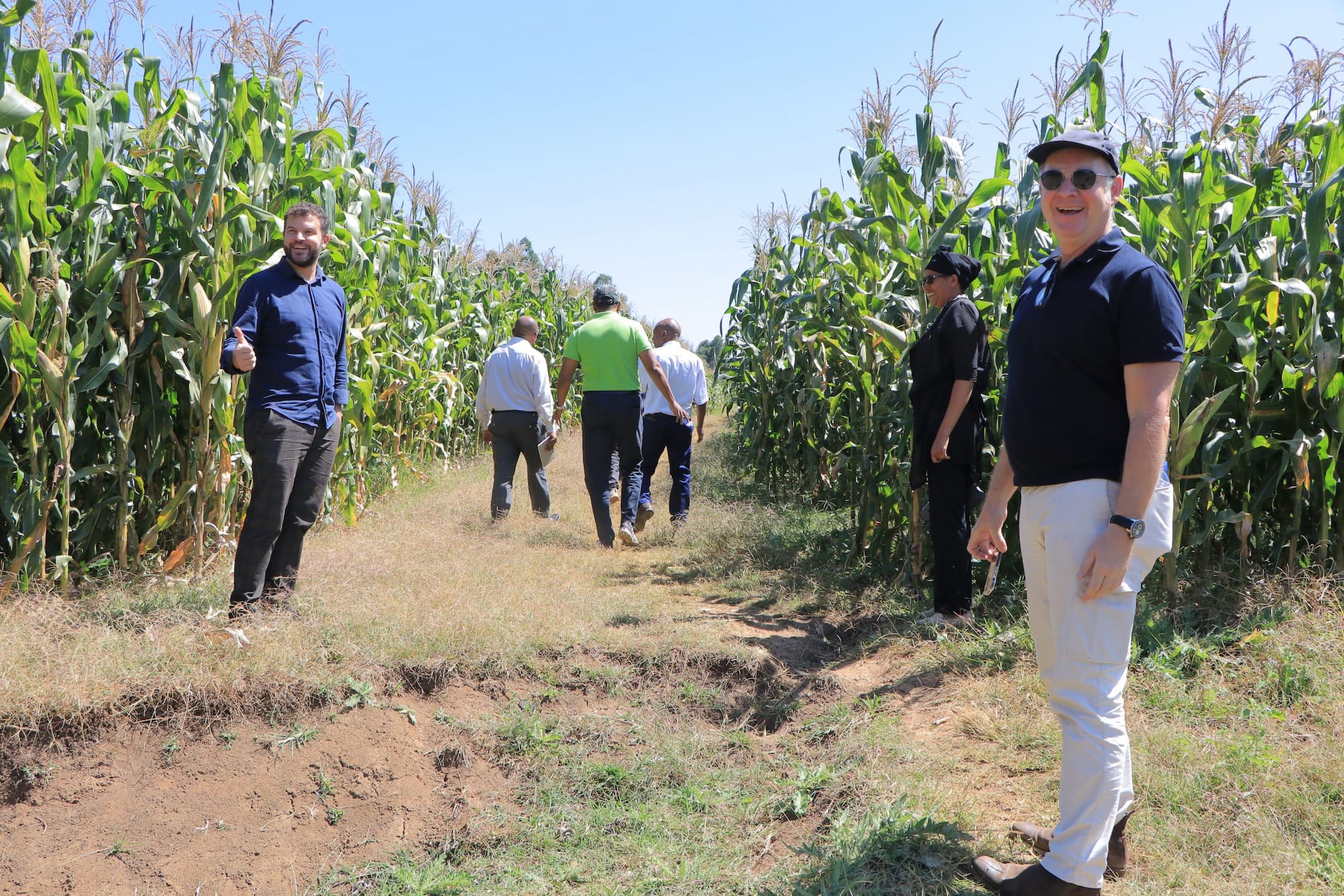
The donors accompanied by the DSW and HRNS teams ended their visit with a tour of projects in Finote-Selam, including youth groups farming corn over two hectares of land, a youth SRH club, a public health center where referral services are linked, and the office premises housing DSW’s, HRNS’s and EMF’s core projects’ staff members.
Photos: private
